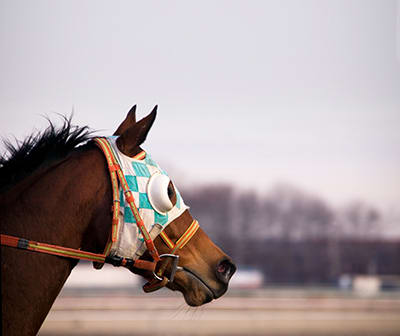THE RACE TRACK OF OUR INDUSTRY
Written By: Rich Madsen
When well-bred, immaculately groomed, professionally trained racehorses step up to the starting line for a competition, their eyes are shielded with blinders. The blinders are proved to keep the horses focused on what is in front, encouraging them to pay attention to the race rather than to distractions such as crowd noise or other horses. Once the race starts, the horses forge ahead toward their goal. Although the blinders keep the competing horses largely out of their view, experienced racehorses have a keen sense of what is going on around them. While not focusing on outside influences, or becoming distracted, they can feel the movement and positioning of the other horses and use that information to navigate the track more accurately.
At Med One, we are not racehorses. However, every day, our organization lines up at the starting line with our competitors. It would be quite simple to say that we should just put on the blinders, focus on our goals, and ignore everything going on around us. After all, we have a talented and highly motivated team that is capable of “outrunning” the others in our race. Unfortunately, our strategy cannot be this simple. We, like the racehorses, must find ways to be aware of the movement around us without letting that awareness be a distraction. Jimmy Lovine, co-founder of Beats and record executive said, “You try to do the best with what you’ve got and ignore everything else. That’s why horses get blinders in racing: You look at the horse next to you, and you lose a step.” While Lovine’s statement is certainly true, it is not a comprehensive plan for an organization’s success.
It has been observed that comparison is the ultimate performance killer. If a racehorse looks from side to side, comparing his performance with the other horses, he will eventually fall behind. However, even with blinders on, an experienced racehorse does not entirely ignore the competition. Instead, he uses his senses (other than sight) to create an awareness, instead of a comparison, of his surroundings. To be competitive in a market, a company must find a way to focus on the goals ahead while still sensing the movement and energy being created by the other companies in their arena. Just as the speed and intensity on a racetrack is enhanced by the competition between the horses, so is the speed and intensity of development and innovation enhanced by competition between organizations in a certain market.

To understand how to navigate the racetrack of our industry, we must understand the real reason behind putting blinders on a horse. John Brubaker, a hunting expert, gave this explanation of the concept of prey vs. predator; “Eyes on the front, born to hunt. Eyes on the side, born to hide.” If we observe the placement of the eyes on various animals, we can tell whether they fill the role of predator or prey. For example, a lion’s eyes are on the front of its head. This indicates that lions are designed, by nature, to hunt and chase the animals in front of them. They are most definitely predators. On the other hand, a horse has eyes on the side of its head. The horse is considered potential prey to other animals. The placement of their eyes gives them 350 degrees of sight. Their wide viewing range allows them to see predators approaching from all sides. When an unexpected motion is detected in their peripheral field, the horses’ first reaction is to run. Running from perceived dangers is a horse’s primary defensive mechanism.
This brings us to the real reason to put blinders on a horse. The blinders are not intended to block out all awareness of a horses’ surroundings. Instead, they are intended to help avoid the natural panic that occurs when a horse sees a perceived threat. With the consistent use of blinders in a race, a horse learns to use his eyes to focus on the goal ahead and use other senses to keep track of his competition without getting spooked. To be industry leaders, an organization must learn to sense, or understand, the competition without insecurity or panic.
Robert Frost said, “A definitive purpose, like blinders on a horse, inevitably narrows its possessor’s point of view.” This statement should not diminish the value of having a clear purpose, or vision, for an organization. Instead, it is a warning against allowing that purpose to consume all the energy of the company, leaving no room for the growth and learning that can come from broadening our point of view. In business, and in life, our blinders should help prevent unnecessary comparison and panic, but not leave us blind.
"you Try To do The besT WITh WhaT you’ve goT and Ignore everyThIng else. ThaT’s Why horses geT blInders In racIng: you look aT The horse nexT To you, and you lose a sTeP.
